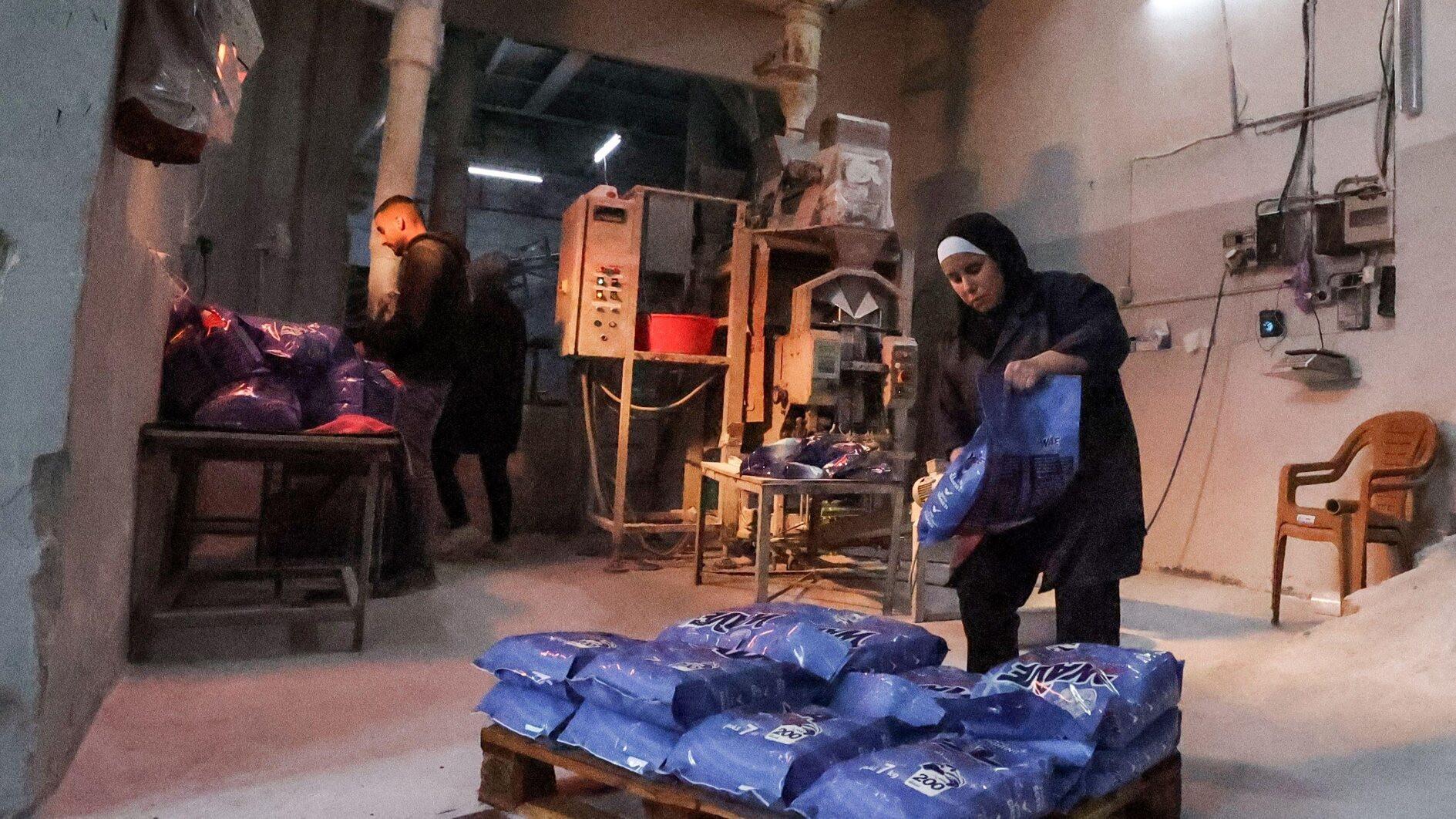West Bank economy in tatters as Gaza war rages
GAZA STRIP

In the occupied West Bank, Hafeth Ghazawneh waits in quiet frustration for customers to visit his falafel stall, which has been deserted since the Oct. 7 Hamas attacks in Israel.
His breakfast and lunch offerings were popular with craftsmen from workshops near Al-Bireh, the twin city of Ramallah, before the Israel-Hamas war broke out.
"Now they're bringing their meals from home because the situation is so difficult," Ghazawneh tells AFP, fearing he will have to shut up shop if the war in the Gaza Strip continues.
Ghazawneh says his income has plummeted from around 7,000 shekels ($1,850) per month to just 2,000 ($530).
His worsening situation reflects the current status of the West Bank economy, which is in tatters as the war in Gaza rages.
The World Bank has estimated the West Bank's GDP could fall by six percent this year, while the International Labour Organization said 32 percent of jobs have already been lost.
The unemployment rate has skyrocketed to 30 percent, up from 14 percent before the war, according to Taher al-Labadi, a researcher at the French Institute for the Near East (Ifpo).
Israel has also withdrawn 130,000 work permits from Palestinians in the West Bank, leaving many with no source of income.
The three million Palestinians living in the West Bank, which Israel has occupied since 1967, cannot travel to Israel without a permit.
The Palestinian economy was already "asphyxiated" and highly dependent on Israel before the war, researcher Labadi says.
Under the Oslo Accords of the 1990s, it was agreed that a political status quo would be maintained and Palestinians were promised economic development.
But this status quo was undermined by Israel's "colonisation of the West Bank", Labadi says, lamenting that Palestinian economic development "did not take place."
As a result, in times of crisis, the increasingly fragile Palestinian economy finds itself "deprived of all its resources and with a very limited capacity for resilience", he says.
Israel controls the borders of the West Bank and collects taxes on Palestinian products, which it must then pass on to the Palestinian Authority.
But since Oct. 7, those taxes have not been paid.
As of December, Israel had not paid two billion shekels in taxes imposed on Palestinian products, according to the Palestinian finance ministry.
The Palestinian Authority has struggled to pay public servants since the taxes were withheld.
Civil servants told AFP their salaries for December have still not been paid.
In October, they received 50 percent of their wages, and 65 percent in November.
















